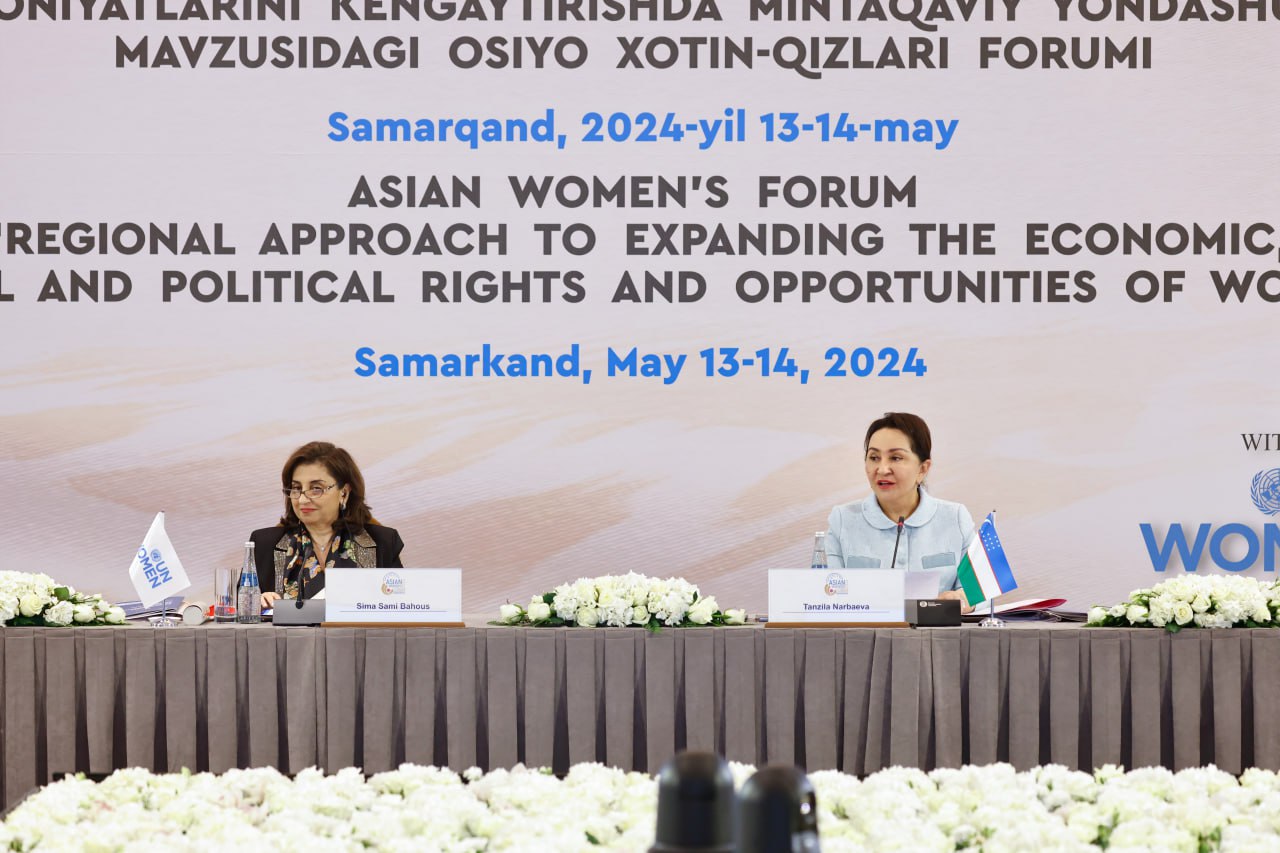Uzbekistan highlights reforms on women's representation in parliament at Asian Women's Forum
The Asian Women's Forum, started on May 13, in Samarkand, Uzbekistan, marked a significant milestone in the ongoing efforts to promote gender equality and women's empowerment across the region.
One of the notable developments at the forum was the recent approval by the Senators of the Oliy Majilis of Uzbekistan for the ratification of Convention 156 on workers with family responsibilities. This ratification demonstrates Uzbekistan's commitment to creating an enabling environment for working parents and ensuring equal opportunities for all individuals in the labor market. Participants expressed optimism that the ratification law will soon be approved by President Shavkat Mirziyoyev, further strengthening the country's legal framework for protecting workers' rights.

Moreover, Uzbekistan's ratification of Conventions 100 and 111, along with its consideration of ratifying other UN and ILO Conventions, underscores the government's dedication to upholding international labor standards and promoting social justice. Participants called on the Uzbek government to fully implement ratified conventions and prioritize the ratification of Conventions 190 on Violence and Harassment and 183 on Maternity Protection. The importance of aligning national legislation with these conventions was emphasized, as it plays a crucial role in safeguarding the rights of women in the workplace.
The forum also recognized Uzbekistan's role as a pathfinder country in the Global Accelerator on Jobs and Social Protection for Just Transitions initiative. This initiative aims to promote women's economic empowerment through investments in the care economy, equal pay for equal work, and support for women entrepreneurs. Participants commended Uzbekistan's efforts in this regard and called for collective action to address gender disparities in the labor market.
Furthermore, the forum highlighted the significant reforms undertaken by Uzbekistan to advance gender equality and improve the livelihoods of women. These reforms include expanding girls' access to education, increasing women's representation in parliament and the civil service, and implementing targeted support for women and youth in the labor market. Such measures reflect Uzbekistan's commitment to achieving the Sustainable Development Goals and reducing inequalities in economic and social life.
In addition to government-led initiatives, the forum emphasized the importance of multilateral cooperation in promoting gender equality and empowering women. Participants called on governments and stakeholders to join the ILO's Global Coalition for Social Justice and prioritize social justice in policymaking and activities at the national, regional, and global levels. Collaboration within the multilateral system, particularly under the Vision 2030 agenda, was highlighted as essential for achieving a transformative gender equality agenda.
The forum also addressed the disproportionate impact of the COVID-19 pandemic on women, particularly those working in sectors severely affected by the crisis and in informal employment. Participants underscored the need for a gender-responsive recovery that addresses pre-existing decent work deficits and promotes women's economic inclusion. Initiatives such as the Women's Entrepreneurship Development Strategy and Programme (ILO-WED) were highlighted as essential for creating decent work opportunities, achieving gender equality, and empowering women economically.
Comments (0)